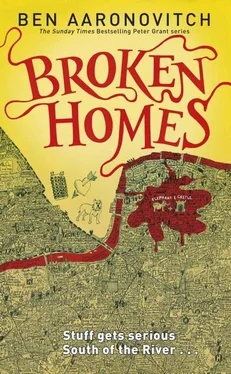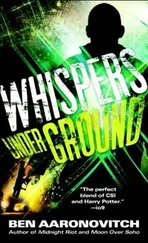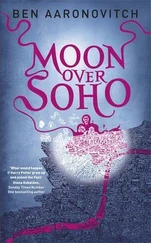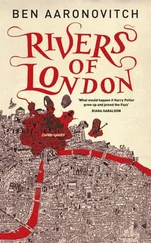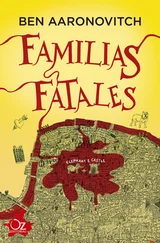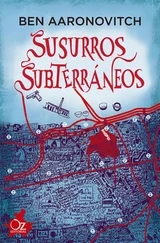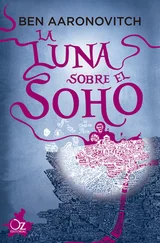Ben Aaronovitch - Broken Homes
Здесь есть возможность читать онлайн «Ben Aaronovitch - Broken Homes» весь текст электронной книги совершенно бесплатно (целиком полную версию без сокращений). В некоторых случаях можно слушать аудио, скачать через торрент в формате fb2 и присутствует краткое содержание. Год выпуска: 2013, ISBN: 2013, Издательство: Orion, Жанр: sf_fantasy_city, на английском языке. Описание произведения, (предисловие) а так же отзывы посетителей доступны на портале библиотеки ЛибКат.
- Название:Broken Homes
- Автор:
- Издательство:Orion
- Жанр:
- Год:2013
- ISBN:9780575132498
- Рейтинг книги:4 / 5. Голосов: 1
-
Избранное:Добавить в избранное
- Отзывы:
-
Ваша оценка:
- 80
- 1
- 2
- 3
- 4
- 5
Broken Homes: краткое содержание, описание и аннотация
Предлагаем к чтению аннотацию, описание, краткое содержание или предисловие (зависит от того, что написал сам автор книги «Broken Homes»). Если вы не нашли необходимую информацию о книге — напишите в комментариях, мы постараемся отыскать её.
Broken Homes — читать онлайн бесплатно полную книгу (весь текст) целиком
Ниже представлен текст книги, разбитый по страницам. Система сохранения места последней прочитанной страницы, позволяет с удобством читать онлайн бесплатно книгу «Broken Homes», без необходимости каждый раз заново искать на чём Вы остановились. Поставьте закладку, и сможете в любой момент перейти на страницу, на которой закончили чтение.
Интервал:
Закладка:
He was wearing, I noticed, a charcoal-grey lightweight worsted suit in a classic sixties cut which he must have acquired about the same time he bought the Jag. It was, I thought queasily, a suit my dad would have been glad to wear. It looked completely pristine and as he approached he shot his cuffs and checked the links — a completely unconscious gesture.
‘Varvara Sidorovna Tamonina,’ he said. ‘I am arresting you for murder, attempted murder, conspiracy to murder, aiding and abetting before, during and after the fact and no doubt a great many other crimes.’ He hesitated and I realised he couldn’t remember the modern caution.
‘You do not have to say anything,’ shouted Lesley. ‘But it may harm your defence if you do not mention when questioned something which you later rely on in court. Anything you do say may be given in evidence.’
I cautiously picked my way through the debris strewn across the yard. Nightingale pulled a set of modern handcuffs and tossed them to me. I helped Varvara Sidorovna to her feet and asked her to put her hands behind her back and slipped the cuffs on.
‘For you, Major,’ I said, ‘the war is over.’
Varvara gave me an exasperated look and then sighed.
‘If only that were true,’ she said.
At which point the Essex Police arrived with the fire brigade just behind them and tried to arrest us all, on the very sound policing principle of arrest everyone and sort out the guilty at the station. There was a certain amount of waving of warrant cards, calls to superiors and veiled threats that what had happened to the farm buildings could easily be repeated if someone didn’t starting taking us seriously, thank you very much. They did take Max and Barry off our hands and a couple of hours later they found our third suspect, whose name turned out to be Danny Bates, five kilometres away, having run as soon as the fireballs started flying. Making him possibly the brightest there.
We all ended up at Chelmsford nick, because not only did it have a brand new custody suite but it was also a short walk from Essex Police Headquarters. Which allowed the Local Response Team to quickly shove their problems all the way up to ACPO rank and then scarper back to Epping.
Essex’s ACPO contingent, awed perhaps by Nightingale’s immaculate suit or, more likely, being equally desperate to punt the whole thing back to the Met, agreed to let us conduct our interviews on our own terms once the arrests had all been regularised. They gave us a windowless office to work in where me and Lesley promptly fell asleep. Nightingale woke us up with coffee, assorted fruit, cheese sandwiches and an interview strategy.
We were going to start with Varvara Sidorovna Tamonina before she could recover her poise. And me and Lesley would do it, so we could escalate up to Nightingale if necessary.
Nightingale eyed our less-than-enthusiastic faces.
‘I’ll ensure that more coffee is laid on,’ he said.
‘Can I have a taser as well?’ asked Lesley, but Nightingale said no.
Varvara Sidorovna sat on the other side of the interview desk dressed in the cheap white T-shirt and grey jogging bottoms that have become the uniform of shame now that we’re no longer allowed to put our suspects in paper suits. There were no tapes in the double cassette recorder and while Essex Police might be taping the output of the CCTV camera mounted in a red perspex bubble above our heads, this was officially an unofficial interview. This had become our standard procedure, a chance for us and our interviewee to discuss issues that neither of us particularly wanted on the record.
‘Can you state your full name please?’ asked Lesley.
‘Varvara Sidorovna Tamonina.’
‘And your date of birth?’
‘November the twenty-first 1921,’ said Varvara Sidorovna. ‘In Kryukovo, Russia.’ Which I found, when I looked it up afterwards, was now part of the sprawling Moscow suburb of Zelenograd and, incidentally, the closest the Germans got to the capital during the Second World War.
‘Did you serve in the Soviet Army during the war?’ I asked.
‘365th Special Regiment. I was a lieutenant,’ she said, ‘not a major. Is the Nightingale going to show his face at some point?’
‘He’s about,’ said Lesley.
‘I’d heard rumours about him, but I’d always thought they were exaggerations. Man, he’s something.’ Varvara Sidorovna grinned and suddenly looked eighteen and fresh off the wheat fields. ‘I’ve never met anyone that fast with that much control before. No wonder the fascists put a price on his head.’
It’s important when interviewing a suspect to stay focused on what’s broadly relevant to the investigation, but even so it took a great deal of self-control not to ask about that. I suspected that should we manage to bang her up in Holloway prison, Lieutenant Tamonina was going to have Professor Postmartin as a frequent visitor.
Who would no doubt also ask for more detail about her training, her wartime operations and her capture near Brynsk in January 1943.
‘I didn’t tell them who I was,’ she said. ‘The fascists had orders to shoot us on sight, so I pretended to be a medic.’ Even then she barely survived the initial abuse at the hands of her captors — we didn’t ask for details and she didn’t volunteer any. She didn’t dare use magic to escape because by that point in the war the Germans had started to deploy their own practitioners to counter the Night Witches.
‘They had these men they called werewolves,’ said Varvara Sidorovna. ‘Who were said to be able to sniff out anyone using the craft.’
‘Were they really werewolves,’ I asked. ‘Shape-shifters?’
‘Who knows?’ she said. ‘We had intelligence reports that their capabilities were real. But I never encountered one, so I don’t know if they were truly men who became wolves or not.’
She was drafted as slave labour as part of Organisation Todt and found herself, much to her own surprise, in the Channel Islands. ‘They said we were on British soil,’ said Varvara Sidorovna. ‘For the first few days I thought Britain had been invaded, but one of the other prisoners explained that these were British islands that were closer to France than England.’ There were a couple of werewolves on the Island of Alderney, where the concentration camps were, but there were none on Guernsey where she was transferred in order to be worked to death building gun emplacements. But as soon as they were clear of the harbour, she knocked down one of the guards at the end of the marching column and escaped in the confusion.
‘It’s not like the Great Escape or Colditz,’ she said. ‘You couldn’t hang around setting up escape committees or any of that nonsense. Any moment of the day some pig-faced guard might just shoot you in the head for the joy of it — you took your opportunities as soon as you could.’
Varvara Sidorovna cheerfully admitted that she’d been totally prepared to off some locals to make good her escape, but fortunately for everyone concerned, except the Germans, she was spotted by an old lady and guided into the arms of the resistance.
‘They called me Vivien,’ she said, after the actress, and provided her with false papers. ‘And taught me to speak English with my beautiful proper English accent.’
After Liberation in 1945 she made her way to London with her new English name and identity and parlayed that into an official identity in the general post-war confusion. She said she got married in 1952 but refused to give any details about her husband.
‘But in any case he died in 1963,’ she said.
They lived in a semi off the High Street in Wimbledon. There were no children.
‘You’re very well preserved for a woman in her mid-nineties,’ said Lesley.
Читать дальшеИнтервал:
Закладка:
Похожие книги на «Broken Homes»
Представляем Вашему вниманию похожие книги на «Broken Homes» списком для выбора. Мы отобрали схожую по названию и смыслу литературу в надежде предоставить читателям больше вариантов отыскать новые, интересные, ещё непрочитанные произведения.
Обсуждение, отзывы о книге «Broken Homes» и просто собственные мнения читателей. Оставьте ваши комментарии, напишите, что Вы думаете о произведении, его смысле или главных героях. Укажите что конкретно понравилось, а что нет, и почему Вы так считаете.
